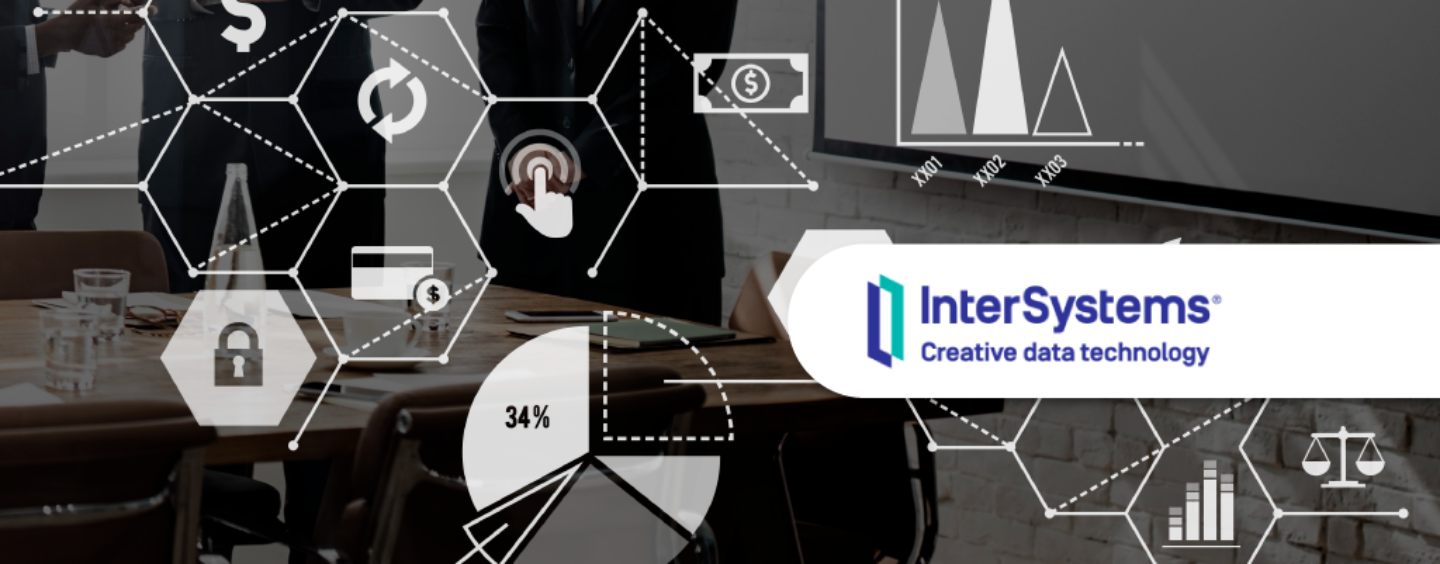
APAC Financial Institutions Struggle to Make Use of Their Data in a Timely and Effective Manner
by Fintech News Malaysia June 30, 2022Despite realizing the opportunities brought about data and analytics, banks and financial institutions in Asia-Pacific (APAC) are still struggling to draw critical insights from their data in an effective and timely manner.
This is one of the findings drawn from a new study by tech provider InterSystems and data analyst firm Vitreous World.
The survey, which polled 176 line of business leaders in APAC, sought to uncover the biggest technology and data challenges faced by financial services organization across the region, as well as their key data initiatives and priorities for the coming year.
Results show that while most financial institutions have realized the imperative to become data-driven businesses, most still face key roadblocks and are having a hard time using the data at their disposal in their day-to-day operations.
Of the APAC business leaders polled, 87% shared frustrations and concerns in using data to drive decision-making. For 33% of respondents, the time it takes to access data is one of the main concerns and frustrations. Meanwhile, 38% cited the inability to report on all the data as their biggest challenge, with some reporting that they have to summarize data or rely on assumptions.
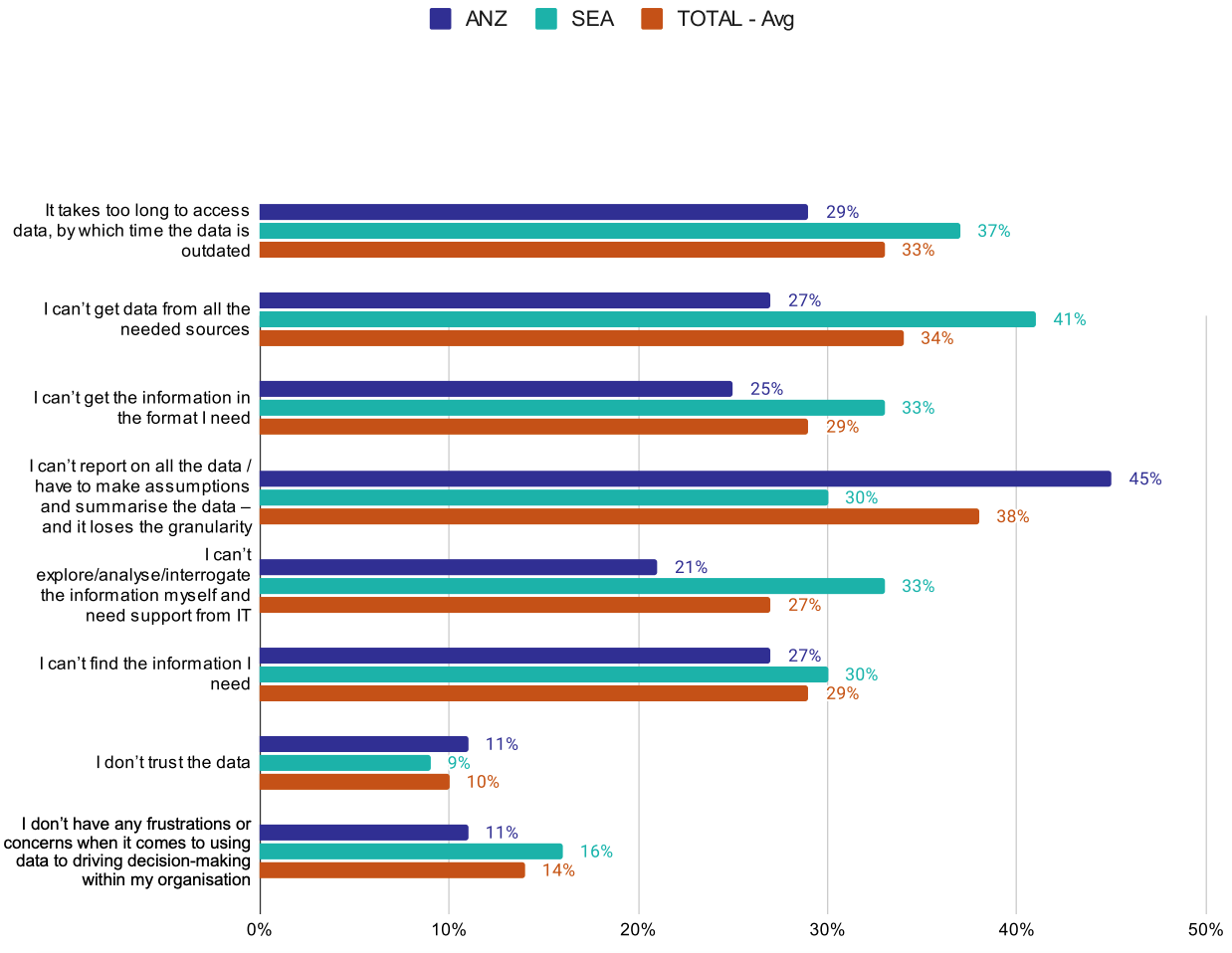
What are your biggest frustrations or concerns, if any, when it comes to using data to drive decision-making within your organization? Source: InterSystems/Vitreous World
Data silos
These challenges largely stem from banks’ complex data infrastructures where data are often spread across multiple systems and may be stored in inconsistent structures and formats. Reflective of that, 98% of respondents reported having data and application silos within their organization.
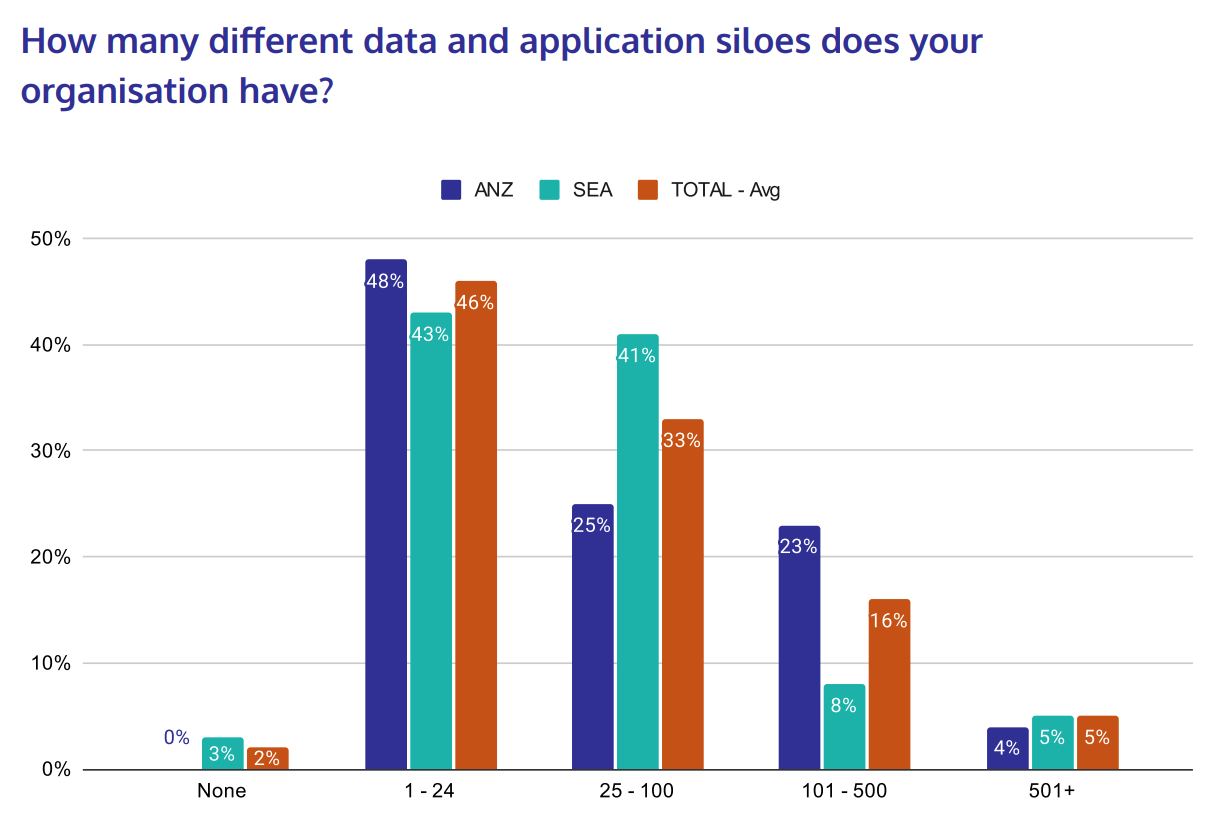
How many different data and application silos does your organization have? Source: InterSystems/Vitreous World
These challenges have implications on the accuracy of information and the speed at which they access their data, hampering banks’ ability to respond in a prompt manner to changing market conditions and capitalize on business opportunities.
Of the APAC business leaders polled, 41% shared difficulties in gaining a 360-degree picture of their customers to deliver personalized services, 39% reported difficulties in using data for decision-making, and 35% indicated being unable to base decisions on real-time information, being forced instead to rely on assumptions.
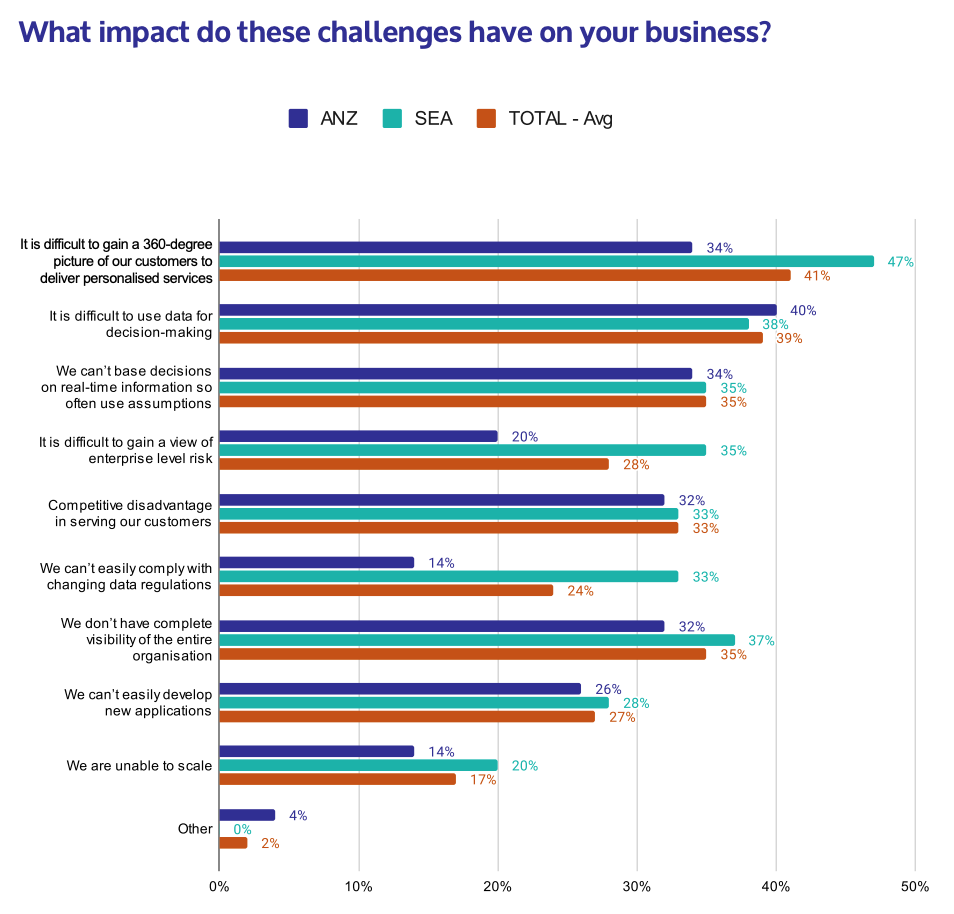
What impact do these challenges have on your business? Source: InterSystems/Vitreous World
APAC financial institutions were found to be well aware of their shortcomings, and are now focusing on addressing the key issues hindering them from harnessing the power of data. When asked about their top three highest technology priorities for the year to come, 54% of APAC financial institutions named mastering data management, followed by replacing legacy systems (49%) and gaining access to real-time data for improved decision-making (48%).
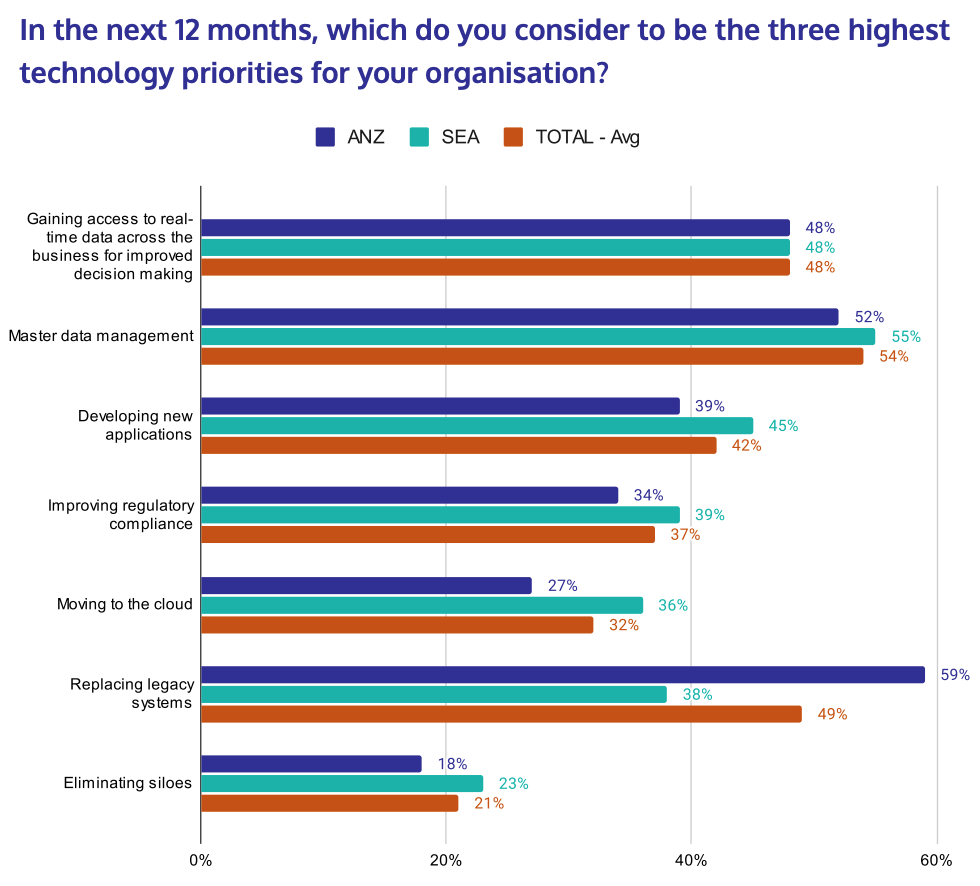
In the next 12 months, which do you consider to be the three highest technology priorities for your organization? Source: InterSystems/Vitreous World
Results from the InterSystems/Vitreous World study are consistent with trends observed in the finance and banking sector over the past couple of years. Around the world, banks are facing growing competition from digital-first companies, and are under increasing pressure to use data and analytics to provide superior experiences to their customers and answer critical business questions.
The Global Voice of the Customer survey 2022, by Capgemini and Efma, found that, of 8,000+ global consumers polled, 75% indicated being attracted to fintech’s cost-effective, seamless and fast services, significantly raising their digital banking expectations.
At the same time, the Executive surveys and interviews 2022, which included participation of 142 banking executives, found that 70% of banks were still lacking the resources to process and analyze their data. 95% of top global banking executives said outdated legacy systems and core banking platforms inhibited their efforts to optimize data and customer-centric growth strategies.
These trends are now shaping the fintech landscape where KPMG observed last year growing interest in tech vendors helping financial institutions master their data.
For example, during H2 2021, UK-based Quantexa raised US$153 million in Series D funding to support expansion of its artificial intelligence (AI) and machine learning (ML)-driven contextual decision intelligence solution.
And earlier this year, Brazilian digital bank Nubank completed its acquisition of Olivia AI, a US data company that applies ML and AI in developing financial solutions. Nubank said it will combine Olivia AI’s platform and services with its own, and hopes those services will help it develop new products based on AI.
Get ‘The Top Data and Technology Challenges in Financial Services Across Asia Pacific’ survey result here:






